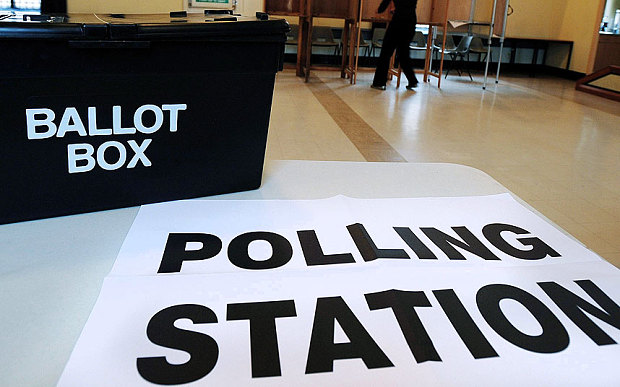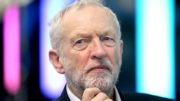As promised on Friday here are my longer form thoughts on the 2022 local government elections.
The local elections were something of a mixed bag. They certainly were not as bad for the Conservatives that many, including myself thought that they might be, which is bad news for those Britons who want to see the Conservative Party become more recognisably conservative. Labour did not do as well outside of London as they should have expected bearing in mind the current state of the nation brought about in large part by Conservative Party mismanagement and short term thinking. Yes of course Labour are trumpeting about how they captured Wandsworth and Westminster in London from the Tories but Labour should have done better outside of London if they are to be considered as a potential General Election winning party.
Even taking into account that many of the local contests would have been very low turn out which means only the very motivated to get out and vote, the results do not look good for Labour. The results appear to show that Sir Keir Starmer’s Labour Party does not seem to have garnered as much support outside of its core vote groups of public sector workers, students and those in Islamic ghettos like the London Borough of Newham for example. There has been no massive swing by voters at these locals towards Labour something that might be expected at this point in the electoral cycle. This does not look like the situation in the later period of John Major’s 1990’s administration where Labour were seen in local elections as a viable alternative to a Tory party mired in sleaze and incompetence. Labour should have done far far better than they did.
The Conservatives did badly but not as badly as expected. Press reports state that the Tories lost eleven councils to Labour or the Lib Dems or to no overall control. In terms of seats, the Tories lost 339 seats across all of the councils that were being contested. This is much less than the 500 plus seat loss figure that many, including myself predicted would be the result of these elections. Whilst some Tories may well have stayed at home out of disgust at the Boris Johnson administration and it’s lack of immigration control, net zero nonsense and the enormous economic failures of Mr Johnson’s government, enough Tories voted to ensure that the Tories did not face a total wipe out. It appears to me from reading around and watching this vote that there may well have been Tories who voted for the Conservatives, not because they actively approve of current Tory policy either at a local or national level, but for fear of seeing elected something worse. The ‘holding onto nurse for fear of finding something worse’, factor is one I believe has played far greater a part in this election than many of us at first envisaged.
Five councils went over to the Liberal Democrats but how likely they are to remain that way come the next local elections or whether the capture of these councils will mutate into increased vote and an increased number of MP’s at the next General Election is a difficult question to answer. The Lib Dems did well from what I can see by somewhat dishonestly presenting themselves as the middle ground when in reality it would be hard to find a mainstream party that was so radical, undemocratic and somewhat illiberal. It’s quite possible that some or all of the councils that the Lib Dems have won may end up going to either the Tories or Labour next time once the voters realise that they’ve elected not the moderate, competent councillors they thought they were electing but tax and spend extremist ideological activists. Maybe a harsh jump in people’s council tax bills, or green extremism or the party’s adherence to the gender cult will make people not vote Lib Dem next time.
In my long time observation of the Lib Dems I’ve come to the conclusion that there is a good analogy for those who vote Lib Dems into local or Parliamentary government. This analogy is of a young man and a young woman in a night club, both drunk but up for some mattress dancing. The couple go off to a hotel room, have some fun, but in the morning, when the beer goggles have gone the man starts to realise that something is wrong. His overnight partner is not, as he may have first thought, a woman with the beauty of Miss Universe crossed with intellect of the physicist Lise Meitner, but a horrendously ugly munter who is also showing signs that they are going to be the sort of bunny boiling psycho-bitch that even the denizens of Hell would not want near them. I suspect that regret of a similar sort might be being felt by voters in some of the new Lib Dem areas, if not now but shortly.
Outside of the Lib, Lab and Con parties and in the other nations of the United Kingdom there were some developments that should give cause to worry and worry for a variety of different reasons. The Welsh continued to vote in the sort of socialists in the form of Labour and the Welsh Nationalists that have for decades pissed in the faces of the Welsh and told them that it is raining. The Welsh will now continue to have worse public services than England (which is saying something), a declining economy and all the worst things that leftie virtue signalling can inflict on a place.
In Scotland things did not change dramatically. The Scottish National Party to a certain extent trod water and didn’t make massive gains nor see massive losses. How much of this electoral sameness is down to the media in Scotland being allegedly unduly influenced by the SNP and not being critical enough of them is difficult to say. However what can be ascertained is that the sleaze and cultural extremism of the SNP has not yet hurt Scots enough and they are not aware enough of the sleaze of the SNP, to propel Scots to make an electoral change. There was also no sign of the sort of Labour resurgence in Scotland that Labour would need if they were to take Westminster Parliamentary seats in Scotland and therefore allow them to govern with a proper Parliamentary majority.
Even allowing for the fact that in Ulster there is a different voting system than in the rest of the UK, a single transferable vote system rather than first past the post, the result of the local elections there do look extremely concerning. Sinn Fein, the party that stands in front of the men of violence from the nationalist community are now the biggest single party at Stormont. As the Unionists are unlikely to want to work closely with a party that was for so long the voice of nationalist terrorist groups then we might be seeing a prolonged period of deadlock in Ulster. We who wish to see peace in this troubled province should remember that Sinn Fein, despite their public relations makeovers are part of the problems of division. As Longrider said in an excellent article on the Northern Ireland vote:
I’ve worked in the province and met plenty of people in the process. What was obvious to me was that decades after the end of the troubles, the divisions still smoulder under the surface. Stand on the walls of Derry and look across at the Bogside to get a feel for it – or even travel through the streets of Belfast and see the unionist flags and murals. Also, the gangsters in the IRA never went away, they still lurk in the background and SF is their respectable face.
As he said the divisions are still there and I can’t see Sinn Fein doing anything except make those divisions worse.
Equally worrying in the case of Ulster is the rise of the Alliance Party. This used to be an admirable cross community party that attempted to stay apart from the sometimes murderous communal divisions that have afflicted Ulster. Now however it’s an ultra progressive, in the worst sense of the word, culture warrior grouping which wants to gut the concept of fair trials for men accused of sexual offences like rape and instead bring into law a pro-complainant bias and ban the reporting and public attendance of and at rape trials. The Alliance also have, surprise surprise, or rather not, a policy of pushing self gender ID and a whole host of other potentially damaging far left causes. One writer, Owen Polley of The Critic Magazine points out that this party has become extremely enamoured of nearly all the most extreme parts of wokism including a rabid hatred of the nation state and all that the nation state means. In my view the Alliance Party has become the party of those from nowhere, who have no concept or loyalty to place or culture or history and who subscribe to all the tenets of leftist globalism. Mr Polley puts it better when he describes the Alliance Party as saying that under the Alliance a person can have any colour of product they like as long as that colour is rainbow.
Turning the attention back to the mainland of Britain and to East London in particular we had the disgusting spectacle of the return of Lutfur Rahman to elected office in Tower Hamlets. The fact that this disgraceful individual has returned to politics is testament to how much Bengali tribal politics trumps not only probity in general and electoral probity in particular, but also how Bengali tribal politics can disempower those outside of those groups. Because Bengali tribal politics is so important the views and needs of others are likely to be very much overlooked by the local authority. East London is going to get a whole lot more dangerous than it is already. If I was a Jew in East London at the moment, one of the few that are still left there that is, I’d be leaving if I was able to do so. I predict that life for non-Muslims of all sorts in Tower Hamlets, especially those non-Muslims not lucky enough to be insulated by wealth from the corruption and political problems of Tower Hamlets, is not going to be that pleasant under Rahman’s group.
Moving to the East of Tower Hamlets into the London Borough of Newham the revelation that a Labour council candidate had been unmasked as a Hitler worshipper and therefore cause her to be suspended from the Labour Party, did not seem to have done her electoral prospects any harm. Mind you that’s not really surprising in a borough where there is so much Islamic extremism, including alleged support among Muslim locals for ISIS, that it is one of those places where I would be wary of wearing a Kippah in. The candidate, Belgica Guaña, had been exposed in the press as a fan of Hitler, a Holocaust denier and a general all round nutjob. Either the Labour Party in Newham did not do due diligence checking on this candidate to see what they’d been up to in the past or they didn’t give a toss until the Hitler worshipping background of this candidate was uncovered, at which point local Labour decided that they didn’t want this person as a candidate. Unfortunately it was too late to remove her Labour Party party affiliation from the ballot paper and she was elected for Canning Town South ward with 536 votes. It certainly seems that being a Jew hater is not much of an electoral impediment in areas dominated by Islam and Islamic politics such as places like Newham. Now I wonder why that could be?
But it’s not all about the results of possibly bent postal votes, terrorist’s political front groups, electoral apathy about the big two parties, Janus-faced Lib Dems slithering their way into local government, crazy globalist progressives or jackboot-licking Labour candidates. There has been some small degree of good news coming out of these elections as well. New and smaller parties including parties not part of the Establishment Left picked up seats. The revived Social Democratic Party got a seat on Leeds council and the Reform Party picked up their first two elected council seats. There was also an increase in the number of councillors representing the Ratepayers Association along with a rise in the number of independents.
I see these developments as good ones even when one of the parties, Reform, has policies towards the Upper House of Parliament that I vehemently disagree with. We need more viewpoint and political diversity in our political life. Britons have been stuck with political duopoly since the 1920’s especially with regards the national parliament and whilst that duopoly served the nation well for years, especially when each side of the duopoly of the Labour and Conservative parties had often radically different views of how the country should be run. However as the Tories and Labour have become rather too alike in terms of policies, this duopoly no longer represents the views of the public as much as it once did and presents the voter with a distinct lack of political choice.
I’m glad to see smaller parties becoming part of local government because it is in local government where smaller parties learn how to handle political authority and maybe become bigger parties. We should do well to remember how small the beginnings of the Labour Party were. They started off with one councillor in Bradford in 1892 who brought about reforms that were copied by other local authorities and got their first local council with Labour in overall control in 1898 in West Ham. The party built up support until it was in the position to be the leader of the national government, with the help of the Liberals, at Westminster although in a minority position with regards seats in 1924 under Ramsey Macdonald. When it comes to politics, a party that can prove itself in local government can, even under the first past the post electoral system can end up in government if that party can convince enough people of their point of view that the electorate will vote for them.
At the end of the day neither of the main two parties got what they wanted from this election and that’s to be expected as neither of the two duopoly parties are doing much to enthuse those outside their core vote and activist groups. We’ve seen a few worrying things such as happened in East London and in Ulster with the return of Rahman and the rise of Sinn Fein and the Alliance Party but on the whole this election has been pretty bland with no indication that Labour have managed to look credible to those outside of London nor that the Tories have managed to get over their association with sleaze and their piss poor energy policy. The Tories lost less than they might have worried that they would and Labour have not enthused the voters. In some ways if you could give this election a moniker to describe it as has been given to other elections such as the 1918 ‘Coupon Election’ or the ‘Khaki elections’ of 1900 and 1945 then these 2022 local elections might credibly be given the nickname of ‘The Meh Election’, as it is a contest that truly has not enthused voters as much as it should have done.






Where Ilive the choice was being kicked in the nuts by a red, blue, green or yellow pair of boots. Plenty of choice as there should be in a democracy.
Same here, your choice is either a Labour candidate who doesn’t care a bit for the ward or a Conservative carpet bagger parachuted in from 20 miles away. The greatest sadness is that the voters here spend all the time between elections moaning about the councilor but then vote for more of the same. Anyone who stands for anything other than Labour has no chance at all of being elected, ain’t politics fun?